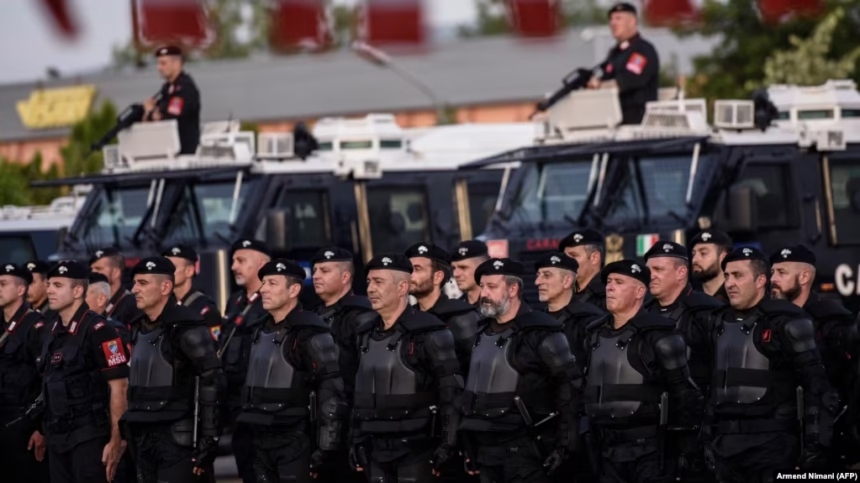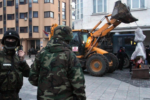NATO and the European Union are deploying additional resources in Kosovo to ensure stability during the parliamentary elections scheduled for February 9, reports RFE.
NATO Strengthens KFOR Presence
NATO has bolstered its peacekeeping mission in Kosovo, KFOR, with an additional 200 Italian soldiers. The mission now consists of approximately 4,000 troops, a significant reduction from the 50,000 personnel deployed in 1999. The Italian infantry brigade “Sassari” will lead several activities alongside KFOR forces.
“This deployment will respond to any significant developments in the security situation, including during the election period,” KFOR stated.
NATO Secretary General Mark Rutte expressed concerns about election-related tensions, emphasizing his engagement with leaders in Kosovo and Serbia to prevent destabilization.
EU Monitors and Supports Democratic Processes
The EU is sending a mission of 100 observers, led by French MEP Nathalie Loiseau. She highlighted the EU’s commitment to supporting Kosovo’s democratic governance, noting that these elections reflect the country’s political diversity.
This marks the EU’s seventh election observation mission in Kosovo.
Election Climate and Political Stakes
The campaign, which began on January 11, has been marred by reports of inflammatory and hate-based rhetoric, as noted by local NGOs. Twenty-eight political entities and one independent candidate are contesting the elections.
Key candidates for prime minister include:
- Albin Kurti (Vetëvendosje Movement)
- Bedri Hamza (Democratic Party of Kosovo)
- Lumir Abdixhiku (Democratic League of Kosovo)
- Ramush Haradinaj (Alliance for the Future of Kosovo)
The elections are widely viewed as a test of Prime Minister Albin Kurti’s leadership and the strength of his party.
Rising Tensions with Kosovo Serbs
The lead-up to the elections has seen heightened tensions with the Serb minority and Serbia. On January 15, Kosovo authorities shut down parallel Serbian institutions in 10 municipalities, citing their illegality. The closures have drawn criticism from the U.S. and EU, which have urged Kosovo to coordinate actions in the Serb-majority areas and focus on dialogue with Serbia.
International Mediation
The EU has reiterated that normalizing relations between Kosovo and Serbia is a prerequisite for their integration into European frameworks. The bloc continues to advocate for dialogue under the Brussels Agreement.







